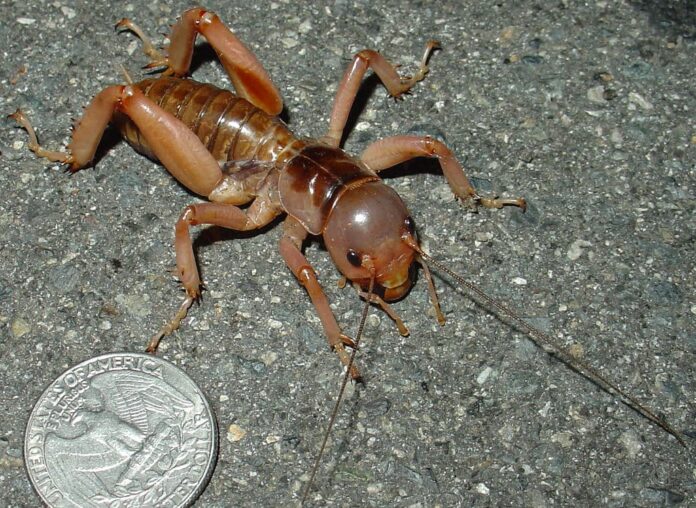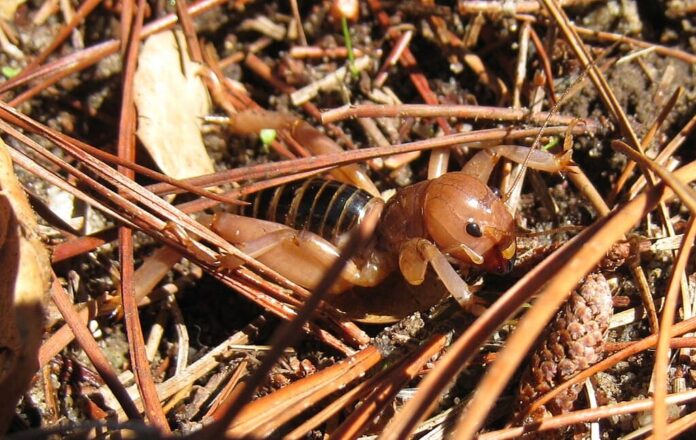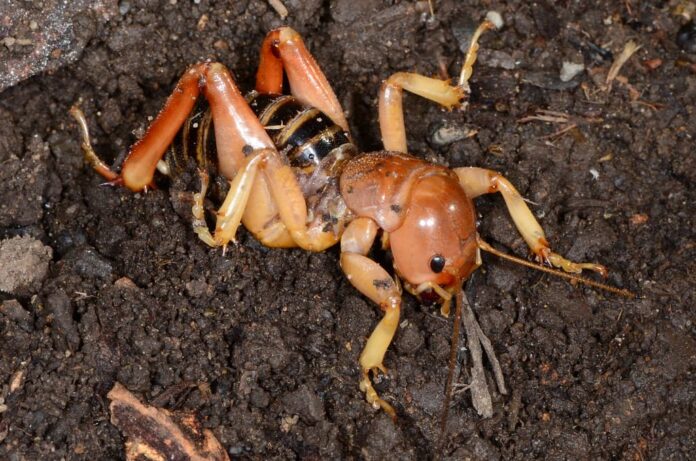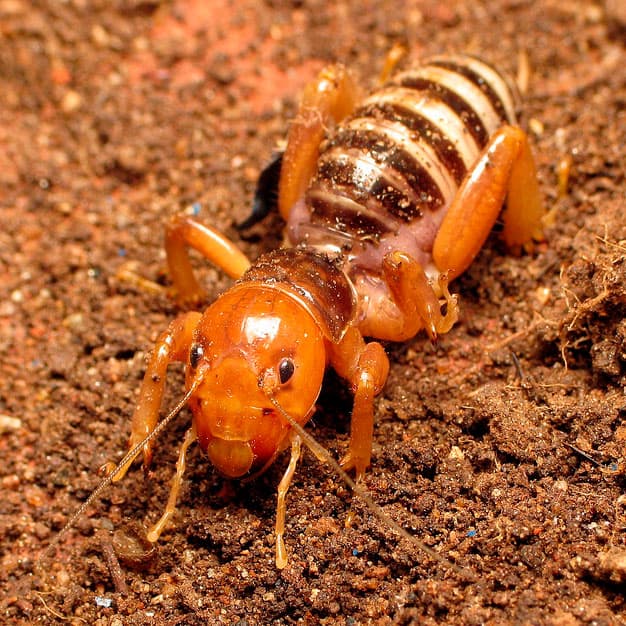Potato bug is a very cute name that also goes by another nickname Jerusalem cricket. The thing is that this species is neither a true bug nor true cricket, and they are not even from Jerusalem. They are flightless insects with some interesting facts that you probably do not know of. Exactly why I am here today, to tell you some cool things about the potato bugs so check them out.
1Appearance

By the look, you can already tell that it is hard to mistake this bug for anything else. It looks like a combination of a large ant and a wasp, and it can grow up to 6 centimeters. The potato bug is orange in color with black stripes on its body along with strong jaws that can inflict pain when biting. This bug has a large bulging head with small eyes, long antennas, and 6 large spiny legs. The two hind legs at the back resemble a cricket’s legs but they don’t serve the jumping purpose. It lacks wings so it gets around by crawling or walking, and they move very slowly
2Behavior

The Jerusalem bugs are nocturnal, and they are usually shy so they tend to avoid humans. Their appearance can be quite intimidating and scary, but are they as dangerous as their look suggests? Not really because the worst they can do is scare you with their appearance or inflict a harmless yet painful bite. Potato bugs do bite when they are cornered or feel threatened but their bites are neither harmful nor poisonous.
This is why it is important to handle them carefully when you want to remove them if you find one at home. You can read the signs when they are ready to bite you which is lifting its back legs up to look bigger. On some occasions, the bug may also make hissing noises to warn you to back off. In case they don’t bite, they give off a foul stench which is also a sign for you to leave. The thing is that they are not aggressive so they will leave you alone if you leave them alone.
Similar to spiders, female Jerusalem crickets eat the males after the mating process. Besides their own kind, there are also other animals that feed on them. Their predators are bats, birds, coyotes, rodents, and skunks that hunt them at night when they come out. Potato bugs escape their predators by digging into the soil or releasing their foul smell.
3Feeding & Habitats

The diet of these bugs consists of dead roots, decaying plant matter, and other organic material. This makes them good because they get rid of bad matters while helping aerate the soil with their digging. On the other hand, they do have their drawbacks when dead roots and decaying plant matter are no longer available. Gardeners don’t like them because these bugs love to suck the juices from the leaves and stems of fruits and vegetables. Though they are not toxic, they leave their toxic saliva behind after sucking juices from the plants. Simply put, potato bugs can harm the growth of plants. And don’t let their name fool you, they have zero interest in potatoes.
Potato bugs inhabit areas in Mexico and the Western United States, and they spend most of their time underground. This little weirdo uses its jaws to dig into the earth to find food so their bites are something to watch out for. The thing is that they bite when you least expect because they often hide in flower beds, under plant leaves, etc. It is also possible to find them under logs, rocks, or sandbanks. So it is common for gardeners to find them when they are getting the soil ready for planting.
4Potato Bugs As Pests
Fortunately, it is extremely rare to experience potato bug infestation inside the house. These bugs live outdoors as their food sources are more abundant outside. However, it is possible for a large number of potato bugs to reside in your gardens. You will want to do something when you start to notice damaged flowerbeds, hissing noises, stunted plants, or wilted plants. There are some ways that you can get rid of the potato bugs if they disturb your gardens which are:
Diatomaceous Earth
Diatomaceous earth (DE) is a non-toxic and simple way to remove potato bugs and other pest insects. DE is a natural powder that you can sprinkle around your garden with effective and fast results. It works by destroying the exoskeleton of the insects, causing them to dry out and die. Go for the food-grade DE as they are safe to use around the gardens and plants without harming children or pets.
Neem Oil
Here we have another natural way that is also safe for you and your pets that you can use. Neem oil can get rid of many types of plant pests including potato bugs. You will need to mix two tablespoons of neem oil with 500ml of water and a drop of dish soap. Spray your solution on the plant leaves and soil, and reapply every two days or after rain. It may take a while to show effects but it works wonders.
Proper Cleaning
Last but not least, make sure to remove dead leaves and other debris from your garden as often as possible. This is to ensure that there are no favorable conditions for them to live and reproduce. When your garden or yard is clean, the chance of them expanding their population is also low.
Related Post: Things You Don’t Know About Brazilian Treehoppers




